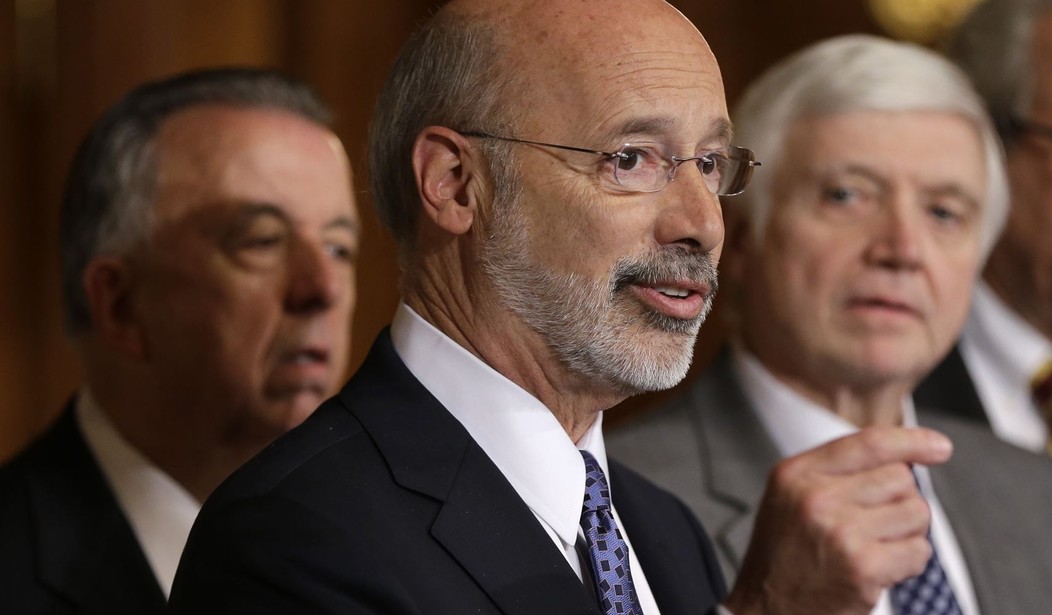Pennsylvania is set to continue on the path of rapid economic decline which the Commonwealth has followed since Governor Tom Wolf took office in 2015. Once named the most liberal governor in America, Wolf recently earned himself a second term in Harrisburg after defeating GOP challenger Scott Wagner.
Since taking office, big-government tax-and-spend policies and and burdensome regulation have been at the center stage of Governor Wolf’s agenda. He proposed a budget increase for every fiscal year since his election, and pushed eleven different tax hikes in his first term alone. These attempts at raising taxes all shared one common theme: each disproportionately affected the majority of middle-class families in Pennsylvania, despite the Governor’s claim to be an ally for middle income residents and families. Most notoriously, Governor Wolf consistently refused to sign budgets put forth by the legislature, despite the GOP majority’s efforts to push bipartisan budgets through for the sake of Pennsylvanians.
Last week, Pennsylvania’s Independent Fiscal Office found that beginning in July of 2019, the Commonwealth is projected to see a 1.7 billion dollar deficit. This increase can be attributed to a number of things, but the IFO’s Executive Director Matthew Knittel points to increases in expenditures:
“Expenditures are expected to increase by $2.7 billion in FY 2019-20, which is roughly $1.7 billion more than the projected increase in net revenues,” he said, per The Morning Call.
Recommended
Another reason worth noting is the vast difference between the population of retiree-aged residents and young, working residents. Those ages 65 and over out number young Pennsylvanians by over 3 percent; with the Pennsylvania economy in such a dismal state, there is virtually no incentive for young college graduates to start their careers in Pennsylvania, and raise their families here.
Governor Wolf’s second term in set to begin as a continuation of his first four years, wreaking economic havoc on Pennsylvanians, and preventing the Commonwealth from staying competitive on a national economic scale.

























Join the conversation as a VIP Member